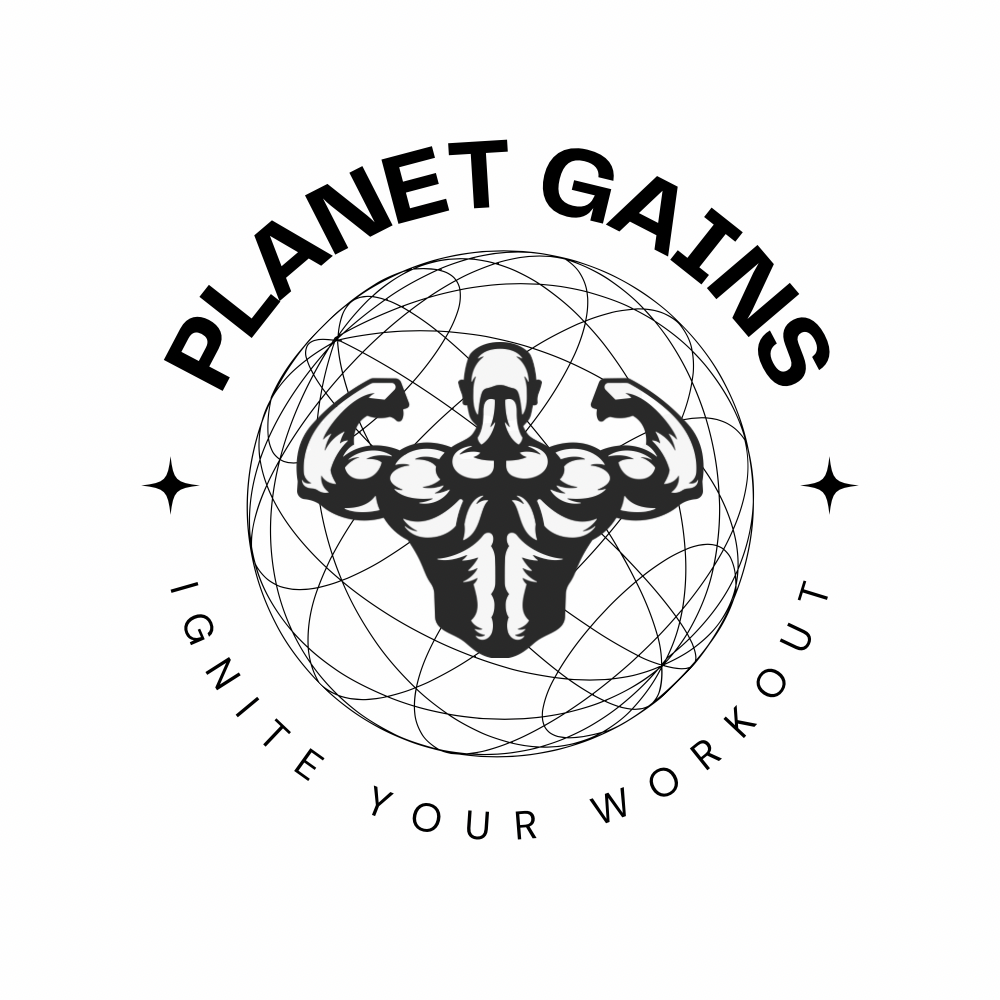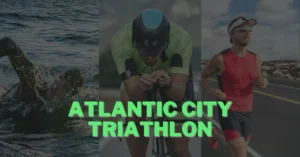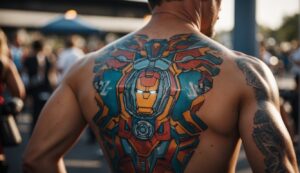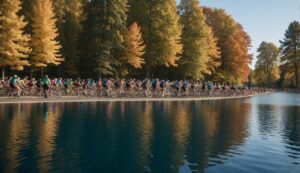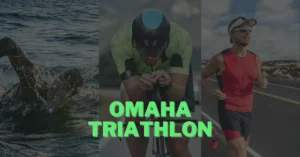📦 FREE Shipping
What to Eat Before a Triathlon: Fueling for Performance 2024

As a triathlete, I can’t stress enough the importance of proper nutrition leading up to race day. You might wonder: What to Eat Before a Triathlon?
It’s the fuel that powers our swim, bike, and run. It’s not just about what I eat, but when I eat it too. Carbohydrates are my go-to macronutrient for stocking up energy reserves in days leading to the event, and I usually aim for approximately 7-10 grams per kilogram of my body weight. This ensures my muscles are saturated with glycogen, ready to pump out the endurance and power I need.

On the day before the triathlon, my focus shifts slightly. Here, my plate is filled with easily digestible, high-carb foods that are low in fat and fiber to avert any digestive troubles. Foods like oatmeal, pasta, and potatoes are my favorites for keeping things balanced and lighter on the stomach. I’m careful to hydrate well, too, complementing my meals with plenty of water and sometimes an electrolyte beverage to maintain optimal fluid balance.
Meal timing on the last day has its rightful place in my nutrition strategy. Eating my final large meal around dinnertime and something light if needed in the evening aids in topping off glycogen stores without feeling overfull. This approach leaves me feeling energetic rather than sluggish come race morning, allowing me to dive into the triathlon with confidence and an excited anticipation for the challenge ahead.
Pre-Race Nutrition Strategies
I’m eager to share some key strategies that have helped me fuel my body optimally for a triathlon. It’s all about understanding what to consume, when to eat, and how to stay hydrated.
Understanding Macronutrients and Their Role
Carbohydrates, proteins, and fats are the macronutrients that form the cornerstone of my pre-race nutrition plan. Carbohydrates are my main energy source, especially as they fuel glycogen stores which are crucial during endurance events. I typically focus on complex carbs for long-term energy. Proteins are the building blocks for muscle repair and recovery, so I make sure to incorporate them into my meals. Healthy fats are necessary but in moderate amounts, as they provide a more sustained energy source.
- Carbohydrates: 60-70%
- Proteins: 10-15%
- Fats: 20-25%
These percentages are a guide to what my macronutrient balance looks like, especially during those days leading up to the race when I’m carb-loading to maximize my glycogen stores.
Timing Your Meals for Optimal Performance
I pay attention to meal timing to ensure my body is fueled and ready to go. I aim for a large, carb-focused meal the day before the race, usually breakfast, to ensure I have enough time to digest and store energy. On race day, my meal plan is more precise:
- 90 minutes before the race: I’ll go for a sports drink and half a sports bar.
- 60 minutes out: I intake no more than 1 gram of carbohydrate per kilogram of body weight.
- 20 minutes before start time: I limit myself to 20-25 grams of carbohydrates.
This staggered approach helps me to maintain energy levels without feeling overloaded or risking gastrointestinal discomfort.
Hydration and Electrolyte Balance
Hydration isn’t just about drinking water; it’s about maintaining electrolyte balance too. I use a strategic hydration plan to ensure I don’t dilute my body’s salt levels, which are crucial for muscle function and nerve transmission. I include drinks that supply electrolytes such as sodium, potassium, and magnesium, especially during the last hour before the race. Knowing my sweat rate helps me calculate fluid needs to avoid both dehydration and overhydration.
- Daily Hydration Goal: Roughly 30-35 ml of fluids per kg of body weight.
- Pre-Race Hydration Plan: Sip on electrolyte-enhanced drinks; avoid gulping large volumes.
This approach to hydration ensures that I am as prepared as I can be to tackle the physical demands of the triathlon.
Designing Your Pre-Triathlon Meal Plan

Creating a diet plan to power through a triathlon involves meticulous attention to my carb intake, balanced proteins and fats, and selecting the ideal foods for my dinner and breakfast before race day.
Carb-Loading Techniques
Carbohydrates are my body’s main source of energy, and mastering carb-loading helps ensure that my glycogen stores are peaked. Starting about three days before the event, I increase my carb intake. I might have a pasta dinner or include oatmeal and bagels in my meals. This doesn’t mean I overeat; it’s about shifting the balance of my diet to emphasize carbs.
- Bagel with honey: An excellent source of easily digestible carbs.
- Pasta: A classic dinner choice to boost glycogen stores.
Incorporating Protein and Fats
Protein is essential for muscle repair, and fats are a valuable long-term energy source. While protein doesn’t require loading like carbs, I ensure to include a moderate amount, such as nut butter or chicken, in my meals. I keep fats healthy but in smaller quantities as they are digested slower.
- Nut butter: Combines well with a banana or whole-grain bread.
- Grilled chicken: A lean protein that pairs well with dinner carbs.
Choosing the Right Foods for Dinner and Breakfast
My dinner should be rich in carbs but not too heavy, eaten early enough to ensure quality sleep. On race day breakfast, I select foods that are high in carbs but low in fiber to avoid gastrointestinal distress.
- Dinner: Pasta with a side of lean protein, finished at least 3 hours before sleeping.
- Race Day Breakfast: Oatmeal with a banana, easy on the stomach and rich in energy.
By sticking to these focal points, I optimize my performance potential for the coming challenge.

Specific Foods and Their Benefits
In preparing for a triathlon, I know it’s vital to choose foods that not only provide energy but also promote endurance and recovery. Here, I’m excited to share specific food options that can give me an edge in my training and competition.
Fruits and Veggies for Endurance
Eating a variety of fruits and vegetables is non-negotiable for me. They are packed with vital nutrients and antioxidants that support my body’s endurance. Bananas are a top pick for their potassium content, which helps prevent muscle cramps.
- Bananas: High in potassium; quick energy source.
- Berries: Antioxidant-rich; helps with inflammation.
- Leafy Greens: Loaded with minerals; aids oxygen transport in blood.
Energy-Dense Snacks for On-the-Go
During long training sessions, I rely on snacks that are rich in energy yet easy to consume. Energy gels and honey sticks are my go-to choices for a rapid glucose supply, while whole grains provide longer-lasting fuel.
- Energy Gels: Fast-acting carbs; convenient on-the-bike energy.
- Whole Grain Toast with Honey: Sustained energy release; tasty and nutritious.
Hydration-Focused Beverages
My hydration strategy includes more than plain water. I opt for electrolyte drinks or sports drinks as they replenish minerals lost through sweat and enhance my water absorption.
- Water: Essential for every cell; I drink consistently.
- Sports Drinks: A blend of sugar and electrolytes; perfect for long-distance sustenance.
- Fruit Juice: Natural sugars; quick hydration. Mix with water to reduce intensity.
The Day of the Race
On race day, every bite and sip I take is strategic, designed to fuel me through the finish line.
Final Pre-Race Meal Considerations
My final pre-race meal is a calculated mix of simple carbohydrates and easy-to-digest proteins. I aim to finish this meal about 3 hours before the start to optimize my blood sugar and energy levels. A typical meal for me would include oatmeal with banana, a slice of white toast with honey, and a lean, protein-rich yogurt.
On-Course Nutrition and Hydration
I depend on a careful balance of hydration and electrolytes during the race. At each aid station, I grab water or an energy drink to maintain hydration. I also carry energy gels, which I’ve found are pivotal in keeping my energy up without causing stomach discomfort. About every 20 minutes, I consume an energy gel, ensuring that I get approximately 30 to 60 grams of carbohydrates per hour, as directed by my pre-race nutrition strategy.
Post-Race Recovery
After crossing the finish line, my focus shifts to recovery. I immediately look for snacks high in protein to repair my muscles and carbohydrates to replenish my glycogen stores. A recovery drink enriched with protein, iron, and electrolytes helps combat fatigue and kick-starts the recovery process. Within two hours, I have a substantial meal to continue the recovery momentum.
Frequently Asked Questions about What to Eat Before a Triathlon
I’m here to share the excitement of preparing for race day and to give you the quick, essential nutrition tips for boosting your triathlon performance.
What are the best breakfast options to fuel for a triathlon event?
My go-to breakfast before a triathlon consists of easily digestible carbohydrates such as oatmeal or a bagel with banana, complemented with a moderate amount of protein like Greek yogurt. It’s all about finding that balance to keep energy levels high from the starting line.
How can I optimize my nutrition for a sprint triathlon?
For a sprint triathlon, I focus on a pre-race dinner with a blend of carbs and proteins — think pasta with chicken. On race day, I keep it light with a snack of a sports bar or fruits, making sure it’s something that sits well in my stomach.
Are there special dietary considerations for triathlons that occur later in the day?
If my triathlon is later in the day, I ensure that my lunch is carb-heavy and gives me sustaining energy. A meal like a quinoa salad with lean protein can be perfect, and I avoid high-fiber foods to prevent any mid-race discomfort.
What should my meal plan look like leading up to an Olympic distance triathlon?
In preparation for an Olympic distance triathlon, I increase my intake of complex carbohydrates a few days before. My meals include brown rice, sweet potatoes, and whole grains, paired with lean proteins and plenty of veggies to keep nutrient levels optimal.
How do I maintain energy levels with food during a triathlon?
During the event, I swear by 30-60 grams of carbs hourly, utilizing energy gels, chews, or bananas. Keeping my hydration up with electrolyte-infused drinks is also crucial to prevent energy dips.
What are the ideal post-triathlon foods for recovery?
Right after crossing the finish line, I reach for a protein shake to initiate muscle recovery. Then, within two hours, I consume a meal rich in protein and carbs, like chicken with rice and vegetables to replenish my glycogen stores and repair tissues.
Is your question “What to Eat Before a Triathlon” answered? Leave me a comment and make sure to also check out Triathlon Equipment and What is an Ironman Run.
